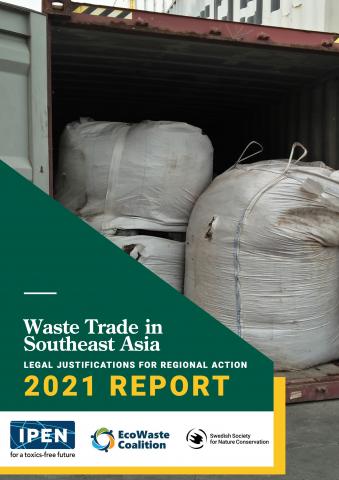Waste Trade in Southeast Asia 2021 Report

The COVID-19 pandemic has already had negative effects on waste management, significantly contributing to increases in medical waste and household waste, and a substantial slowdown in recycling efforts. This upsurge in hazardous waste particularly endangers developing countries that are destinations for waste exports via the global waste trade.
Southeast Asian countries continue to be at risk to the influx of legal and illegal waste from the developed and industrialized world. Current legal and policy responses are not enough to stop the entry of illegal waste, and more importantly, are insufficient to protect the health of both people and the environment. ASEAN countries evidently need a unified and stronger response to waste trade.
This report provides a survey of regional efforts to recognize and address the issues of pollution and waste management, including progress on the ratification and acceptance of the Basel Ban Amendment in ASEAN Member States. National laws and policies on the waste trade are examined, with a particular focus on the Philippines, Indonesia, Thailand and Malaysia. Regional documents, declarations and mechanisms from the ASEAN are also analyzed. Based on these, the report argues that the broad ASEAN and bilateral initiatives, and trends in national action provide ample legal justifications for stronger regional action against the global waste trade.
Read the full report below.
| Attachment | Size |
|---|---|
| 12.13 MB |
